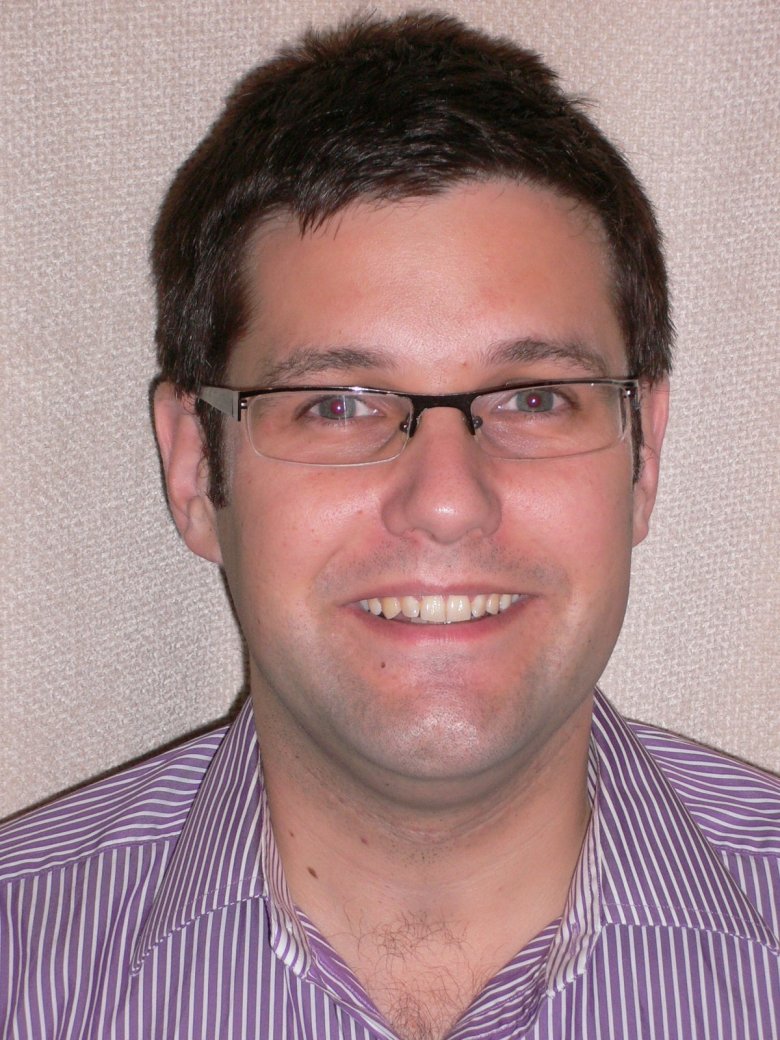Dr Thomas Jackson

Thomas Jackson is a Clinician Scientist in the Institute of Inflammation and Ageing, University of Birmingham and an Honorary Consultant at Queen Elizabeth Hospitals Birmingham. He was a Fellow in Ageing Research from 2012 to 2015, funded by the British Geriatrics Society and Research into Ageing at Age UK. He was awarded a PhD in 2016. He tweets at @delirious_dr
Thomas says: I started my research ‘journey’ an interested, slightly naïve, but enthusiastic registrar who wanted to ‘do research’. However, I was going to ‘do it properly’ so I’d have some idea if this was a career for me. I now work in a University post, spending half my time on research and teaching. I hope to share ‘how I made it’ but am very conscious I am only ‘making it’ and am certainly not there yet.
Despite some initial setbacks (apparently I should have stayed in London!), the key was mentorship and supervision. I had fantastic initial help from Dr Bart Sheehan, a psychiatrist, who steered a nub of an idea about what happens to people we discharge with delirium, into a small pilot project I could fit around my training. Inspiration via a distance learning course on methods in cognitive ageing from Edinburgh led to me making research fellowship applications with Alasdair MacLullich, and tapping into the fundamental science at my home University, Birmingham, through Professor Janet Lord. A very near miss fellowship with the Alzheimer’s society then brought me in touch with Professor John Gladman in Nottingham. This is not an exercise in name dropping, just an illustration of the need to get the team right. Bringing together such a group was hard work and required persistence, but enabled me to win a fellowship from Age UK and the BGS to start my PhD project investigating delirium and unrecognised dementia in general hospitals. I owe them an awful lot.
It may seem a path less travelled compared to other specialities where perhaps research degrees are done because they are needed to secure consultant jobs, as opposed to being motivated by genuine intellectual curiousity. For me, I was genuinely interested in the answer to the question, and it was my research, not someone else’s.
World class research in ageing and clinical gerontology has to be multidisciplinary, which mirrors our clinical roles. Engaging with fundamental scientists is mutually mind- broadening and the opportunity to acquire new knowledge and skills (isolating neutrophils anyone?! Thanks @teamneutrophil) are refreshing and challenging.
There are two key themes through my whole journey; hard work, and frank, wise supervisors. Despite the quiet constant murmur that research is a ‘doss’, anyone who has done it will tell you otherwise. It is littered with disappointments, hurdles and frustrating late nights. These are however, strongly counterbalanced with the good times. Seeing your work published, presenting on scientific platforms, engaging with your research ‘heroes’, and feeling you may have genuinely made a difference to lots of patients is very exciting. Persistence is key though, as no-one will give this to you on a plate. The next hurdle for me is a personal fellowship and the nirvana of ‘tenure’.
Juggling the two roles can be difficult, and the bars set by universities can seem very high. We’ve had a tendency to see ourselves as ‘small fry’ who will struggle with REF submission. We must challenge this, and aim to produce consistent collaborative world-class research to try and answer the key unknowns in our discipline; rise to the challenge, not shy away from it.
I now derive considerable satisfaction from trying to offer the same degree of support and encouragement to the current crop of three NIHR academic clinical fellows we now have here, as they start their journeys.
The future’s bright, and we must nurture it to make it even brighter.
Thomas Jackson
Click here for Thomas's profile
Highlighted Publications
Wilson D, Jackson T, Sapey E, Lord JM. Frailty and sarcopenia: The potential role of an aged immune system. Ageing Res Rev. 2017;36:1-10. doi.org/10.1016/j.arr.2017.01.006
Jackson TA, Moorey HC, Sheehan B, Maclullich AM, Gladman JR, Lord JM. Acetylcholinesterase Activity Measurement and Clinical Features of Delirium. Dementia and Geriatric Cognitive Disorders. 2017;43(1-2):29-37. doi.org/10.1159/000452832
Jackson TA, Wilson D, Richardson S, Lord JM. Predicting outcome in older hospital patients with delirium: a systematic literature review. International Journal of Geriatric Psychiatry. 2016;31(4):392-9. doi.org/10.1002/gps.4344
Jackson TA, MacLullich AM, Gladman JR, Lord JM, Sheehan B. Undiagnosed long-term cognitive impairment in acutely hospitalised older medical patients with delirium: a prospective cohort study. Age and Ageing. 2016;45(4):493-9. doi.org/10.1093/ageing/afw064
Jackson TA, MacLullich AM, Gladman JR, Lord JM, Sheehan B. Diagnostic test accuracy of informant-based tools to diagnose dementia in older hospital patients with delirium: a prospective cohort study. Age and Ageing. 2016;45(4):505-11. doi.org/10.1093/ageing/afw065
Jackson TA, Naqvi SH, Sheehan B. Screening for dementia in general hospital inpatients: a systematic review and meta-analysis of available instruments. Age and Ageing. 2013;42(6):689-95. doi.org/10.1093/ageing/aft145
BGS blogs by Thomas Jackson
Looking out, not in: A week at the European Academy for Medicine of Ageing